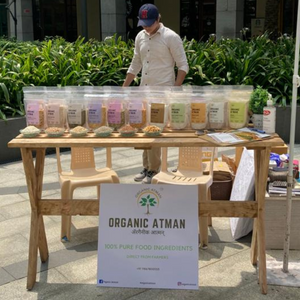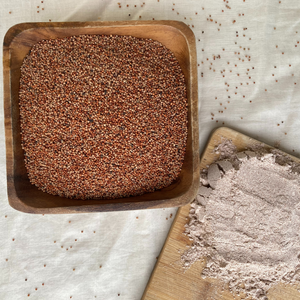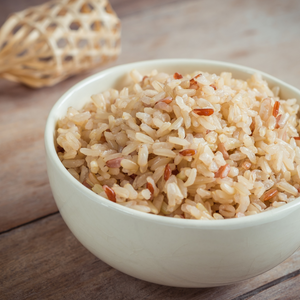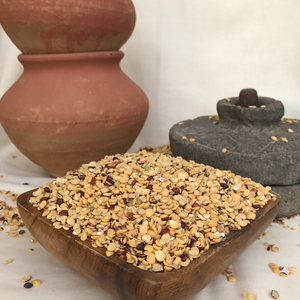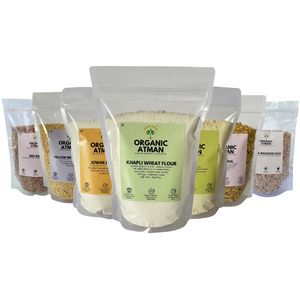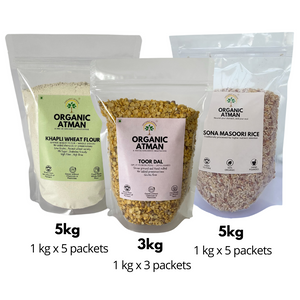5Great reasons to buy from us:
-

FARMER SOURCED
No Middlemen, ensuring fairness in dealing with our farmers -

TRANSPARENT
Know where your produce comes from across India -

AUTHENTIC
Continuous Quality Control and Assurance -

NUTRITION FOCUSED
Doing things the right way! Less processing, more devouring -

NO PRESERVATIVES
No hidden ingredients, No Food Additives
Bansi represents an ancient native wheat variety that has thrived in India for 2500 years. Despite being less cultivated than modern hybrid wheat strains, Bansi wheat flour is a nutritional powerhouse. At Organic Atman, we grind whole wheat grains using stone mills to preserve the bran, endosperm, and germ, thus enhancing the fiber content and overall nutritional value. The milling process at OrganicAtman is conducted at low speeds to maintain the flour's coolness, preserving the wheat's nutrients.
Bansi, a type of Durum wheat, originated from cultivated hulled Emmer wheat. In the early 20th century, about ten kinds of Durum wheat were recognized in India. These variations were commonly cultivated for producing rotis due to their flavor, nutritional content, and higher yields in comparison to white and soft bread wheat varieties.
Modern Durum wheat strains have been selectively bred to improve their baking properties, notably by increasing gluten accessibility compared to older strains. Unlike ancient Durum wheat types like heirloom Bansi, newer variants prioritize baking characteristics over other attributes.
The older Durum wheat types such as Bansi possess a less robust gluten structure, making them suitable for pasta and semolina manufacturing. Although heirloom Bansi is rich in protein and gluten, the tough endosperm of this strain restricts gluten availability.
Stone-ground from naturally grown whole wheat grains, Organic Atman’s Bansi Wheat Flour offers excellent taste and produces soft chapatis and rotis.






